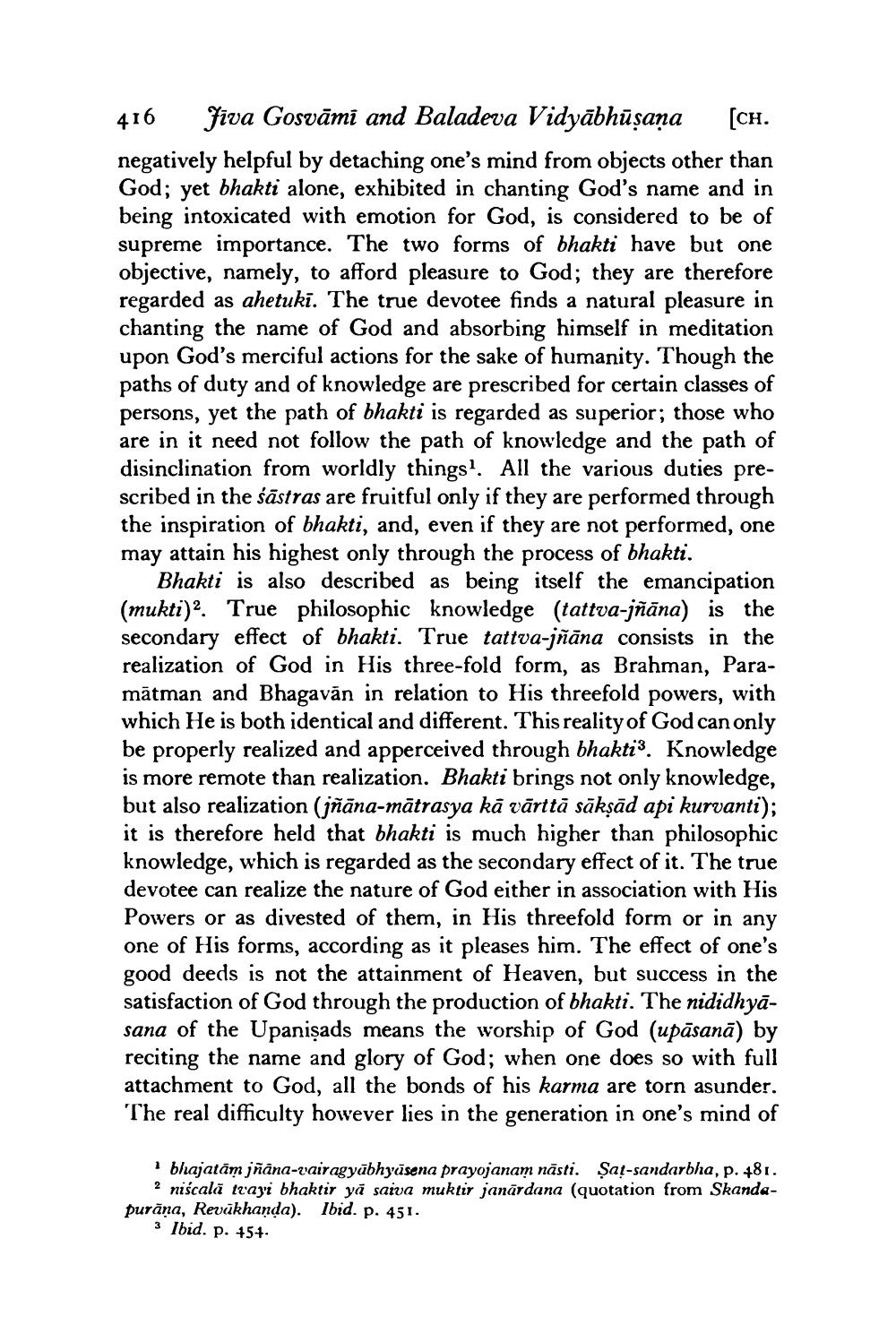________________
416 Jiva Gosvāmi and Baladeva Vidyābhūsaņa [CH. negatively helpful by detaching one's mind from objects other than God; yet bhakti alone, exhibited in chanting God's name and in being intoxicated with emotion for God, is considered to be of supreme importance. The two forms of bhakti have but one objective, namely, to afford pleasure to God; they are therefore regarded as ahetuki. The true devotee finds a natural pleasure in chanting the name of God and absorbing himself in meditation upon God's merciful actions for the sake of humanity. Though the paths of duty and of knowledge are prescribed for certain classes of persons, yet the path of bhakti is regarded as superior; those who are in it need not follow the path of knowledge and the path of disinclination from worldly things?. All the various duties prescribed in the śāstras are fruitful only if they are performed through the inspiration of bhakti, and, even if they are not performed, one may attain his highest only through the process of bhakti.
Bhakti is also described as being itself the emancipation (mukti)? True philosophic knowledge (tattva-jñāna) is the secondary effect of bhakti. True tattva-iñāna consists in the realization of God in His three-fold form, as Brahman, Paramātman and Bhagavān in relation to His threefold powers, with which He is both identical and different. This reality of God can only be properly realized and apperceived through bhakti?. Knowledge is more remote than realization. Bhakti brings not only knowledge, but also realization (jñāna-mātrasya kā vārttā sākṣād api kurvanti); it is therefore held that bhakti is much higher than philosophic knowledge, which is regarded as the secondary effect of it. The true devotee can realize the nature of God either in association with His Powers or as divested of them, in His threefold form or in any one of His forms, according as it pleases him. The effect of one's good deeds is not the attainment of Heaven, but success in the satisfaction of God through the production of bhakti. The nididhyāsana of the Upanişads means the worship of God (upāsanā) by reciting the name and glory of God; when one does so with full attachment to God, all the bonds of his karma are torn asunder. The real difficulty however lies in the generation in one's mind of
bhajatām jñana-vairagyābhyasena prayojanam năsti. Şat-sandarbha, p. 481.
2 niscalā trayi bhaktir yā saiva muktir janārdana (quotation from Skandapurāna, Revükhanda). Ibid. p. 451.
3 Ibid. p. 45+.




